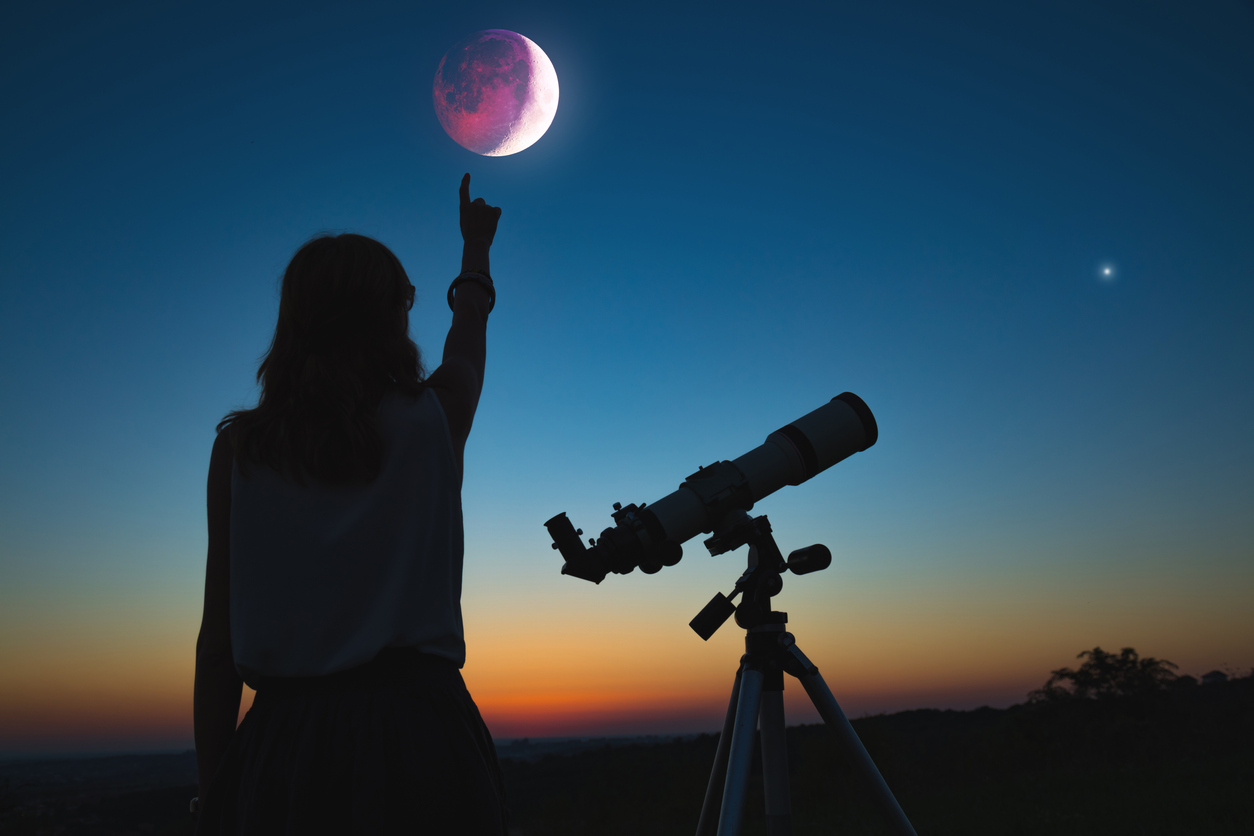Can Looking at an Eclipse Damage Your Eyes?

Looking directly at the sun can permanently damage your eyes, especially during a solar eclipse. Here’s how to stay safe:
It seems that no matter a person’s age, the prospect of an eclipse — particularly a solar eclipse — brings about child-like excitement. The August 21, 2017 solar eclipse that traveled across the United States saw masses of people loading into cars to keep up with the eclipse’s totality (the point when the moon completely covers the sun so that only the outermost parts of the sun’s atmosphere are visible).
Although eclipses of all kinds occur multiple times a year across the country, people seem unable to resist the excitement when one appears close to home. However, while eclipses are thrilling astronomical events, they also carry potential dangers if you’re unprepared. Before you start making plans for the next big U.S. eclipse (coming April 8, 2024) find out why it’s important to keep your eyes safe and never look directly at the sun.
What Is an Eclipse?
An eclipse is defined as an event where an astronomical object is blocked from view. The eclipses we are most familiar with fall into two main categories: lunar eclipses and solar eclipses. Lunar eclipses occur when the moon passes behind the earth so that the sun’s rays are unable to hit it directly. This type of eclipse poses no danger to the observer since you are just looking at light hitting the moon, not directly at a source of light.
A solar eclipse, on the other hand, is quite dangerous to look at directly. This type of eclipse occurs when part of the earth is covered in a shadow cast by the moon as it passes in front of the sun.
The Dangers of a Solar Eclipse
The only safe time to look at an eclipse is during the totality. Otherwise, you are staring directly at the sun’s rays, which pose numerous risks for your eyes. In fact, looking at the sun during a solar eclipse can literally burn your retina and make you go blind. The sun’s light is so intense that even a small sliver of exposed light is enough to cause irreversible damage.
When a person looks directly at the sun, solar radiation hits the retinas, triggering a series of chemical reactions that can result in damage, or even destruction, of the photoreceptors in the eyes. This means that the cells that transmit images to the brain are no longer functional. The length of time a person spends looking directly at the sun, in addition to the sun’s position in the sky (the sun is brightest when it is overhead), impacts the severity of the damage.
The result of this retinal damage is called “eclipse blindness” or solar retinopathy, a condition in which you lose central vision while peripheral vision generally remains intact. Around half of patients with eclipse blindness fully recover their sight within six months, while the other half either partially recover it, or remain blind forever. For these people, the only solution is working with an eye doctor to adapt to life without central vision.
Additional consequences of retinal damage caused by looking at a solar eclipse are distorted vision and altered color vision.
How to Protect Your Vision
The only safe way to look at a solar eclipse at any time other than totality is by wearing eclipse glasses, which filter out UV radiation. There are also devices you can buy or build — such as a pinhole projector — which allow you to safely view the shadow of the eclipse.
If you’re concerned about your eyesight, or simply need a vision check-up, don’t wait. Contact us today to schedule an appointment with the eyecare specialists at ICON.
[DISPLAY_ULTIMATE_SOCIAL_ICONS]








